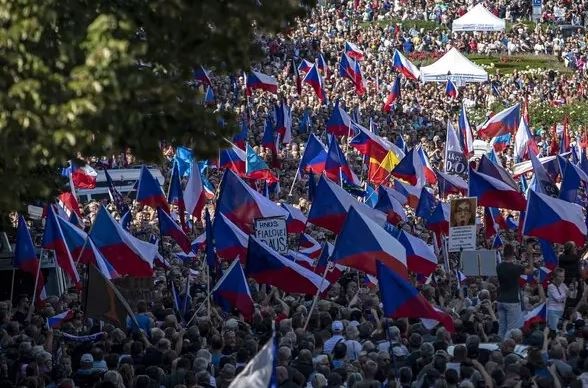This past weekend, European nations took steps to mitigate the negative effects of rising expenses and a worsening energy crisis brought on by the conflict in Ukraine. These governments also scurried to prepare for the risk of societal unrest as the temperatures continue to drop.
As a result of Europe’s efforts to wean itself off of Russian fossil fuels as well as the first large demonstrations over energy prices surfacing on the continent, governments are rushing to develop temporary measures in advance of the autumn and winter seasons. The emergency conference of the European Union’s energy ministers is scheduled to take place this week, and on Sunday, a total of three separate nations declared that they would be taking relief measures.
The crisis was exacerbated after Russia’s invasion of Ukraine and Western governments’ imposition of harsh sanctions on Moscow. At this time, Europe is making efforts to significantly cut the amount of oil and gas that it imports from Russia.
The German government made the announcement two days after Gazprom, a Russian energy company owned by the Kremlin, said that it would permanently cease the flow of gas via the Nord Stream 1 pipeline, which finishes in Germany and supplies gas to a significant portion of Europe. Gazprom has said that the pipeline would stay blocked until the issues discovered during inspections have been remedied; however, the company did not provide a deadline.
Officials from Europe have said that the decision was made for political reasons. It occurred on Friday, the same day that the finance ministers of the Group of 7 nations reached an agreement to put a price ceiling on Russian oil. This was done in a bid to cut off part of the cash that Moscow continues to get from Europe in the form of energy sales.
During the address that Mr. Scholz gave on Sunday to announce the package, he said that “Russia is no longer a trustworthy energy provider,” which is a part of the “new reality.” “The effects of the conflict in Russia are being felt by all of us right now.”
Anxiety about the economy is pervasive throughout Europe.
Tens of thousands of people marched to the streets in Prague on Saturday to express their displeasure over the rising cost of energy. The previous day, the Czech government had just avoided losing a vote of no confidence after allegations that it had failed to take action on rising prices. Many of the protesters voiced their opposition to the fact that the Czech Republic is a member of both NATO and the European Union, and they were led in this by political extremists and fringe parties.
The demonstrations highlight the increasing fears among European leaders that the oil crisis and rising prices might lead to political instability in the region. A good number of residents have expressed concern about the future of their savings and expressed anxiety that they may be unable to pay their expenses this coming winter.
James Allcock, who lives in the eastern region of England, said that he had invested his whole savings into his restaurant in Beverley. Now, at the age of 36, the man is terrified that he could lose everything. He said that if the government does not provide assistance within the next two to three weeks, then “we won’t have a company by this time next year.”
Some Europeans who support Kyiv have been put on the fence as a result of the war’s economic repercussions.
On Sunday, the leading candidate for the position of prime minister in the United Kingdom, Liz Truss, said that if she were elected, she would “act quickly” to address the issue of skyrocketing energy prices.
At a press conference in Stockholm, the Swedish government announced that it will provide a liquidity provision of 23 billion Swedish kronor to assist energy businesses with supply purchases until March. Some electrical suppliers face the possibility of “technical insolvency” by Monday if they do not get this help, as stated by Mikael Damberg, the Minister of Finance.
In response to President Emmanuel Macron’s demand for an age of energy “sobriety,” France has initiated its most extensive conservation campaign since the oil crisis of the 1970s. Over twenty-six billion dollars’ worth of expenditures have been made by the government in an effort to mitigate the effects of increasing prices for residential energy.
In an interview that took place over the weekend with the BBC, Olena Zelenska, the wife of Ukraine’s President Volodymyr Zelensky, stated that while she was aware that a large portion of Europe was suffering from higher energy costs, she urged viewers to consider the price that was being paid in her country.
